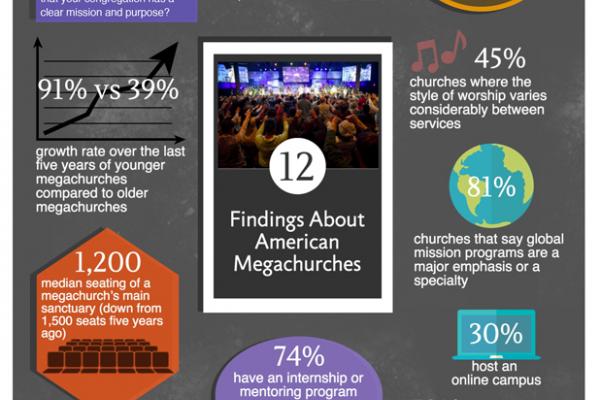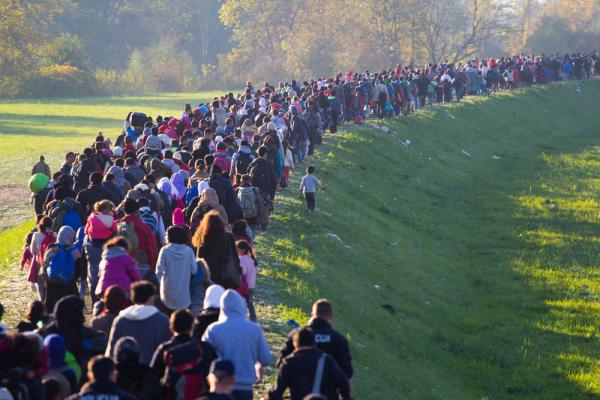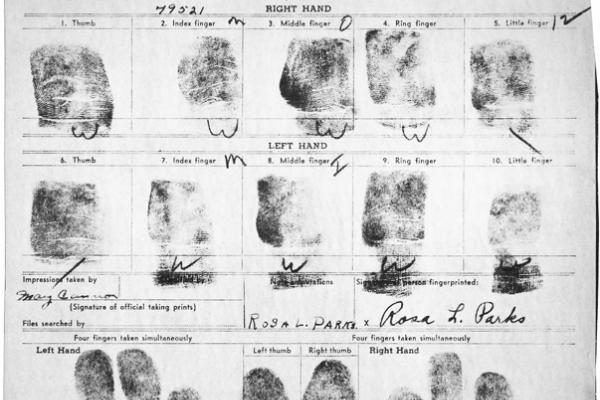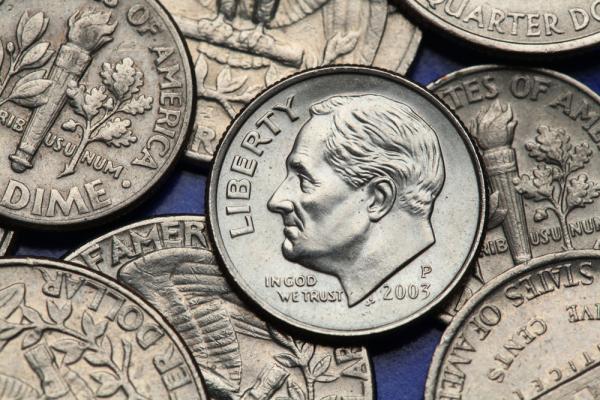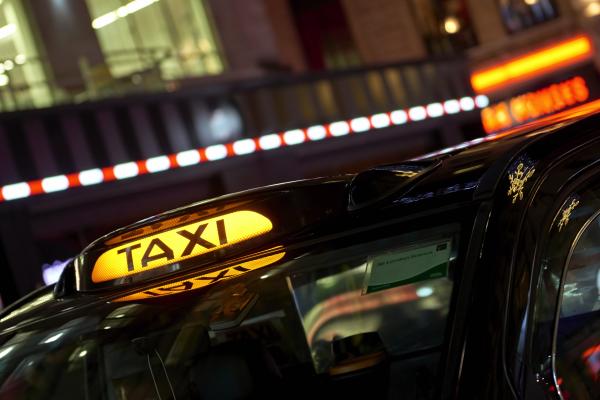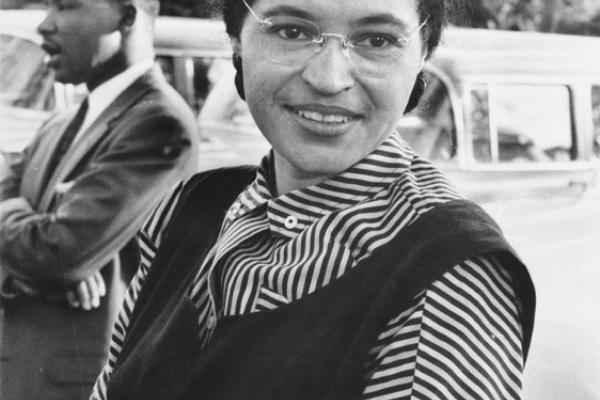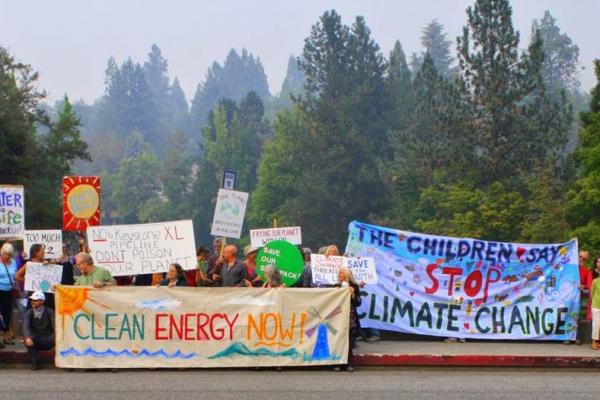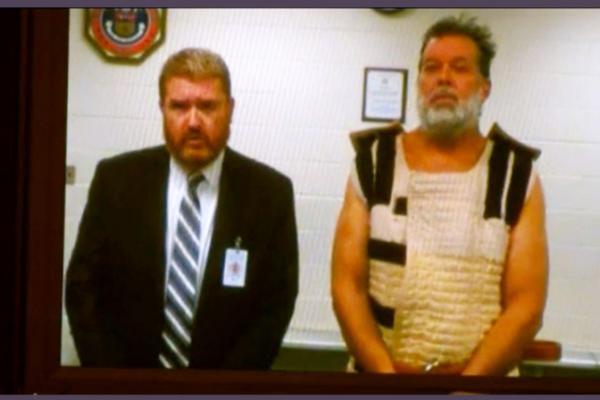Change is coming to American megachurches — those behemoths for believers that now dot the religious landscape.
There are more participants in megachurch worship than ever.
“Last weekend 1 in 10 adults and children who went to a Protestant church went to a megachurch — about 5 million people,” said Warren Bird, director of research for Leadership Network and co-author of a megachurch study released Dec. 2.
But individual attendance is down to once or twice a month — or less.
The French government has banned mass gatherings during COP21 in Paris. So protesters have gotten creative.
The organization Brandalism has posted 600 pieces of artwork and fake advertisements all over the city that mimic real advertisements but actually denounce politicians and corporations for their apathy toward climate change.
Faith-based agencies that resettle refugees in America stand to gain more than a clear conscience if the United States — after what is expected to be a fierce debate in Congress — accepts a proposed 10,000 Syrian refugees next year.
More refugees also means more revenue for the agencies’ little-known debt collection operations, which bring in upwards of $5 million a year in commissions as resettled refugees repay loans for their travel costs. All nine resettlement agencies charge the same going rate as private-sector debt collectors: 25 percent of all they recoup for the government.
This debt collection practice is coming under increased scrutiny as agencies occupy a growing stage in the public square, where they argue America has a moral obligation to resettle thousands of at-risk Syrian refugees. Some observers say the call to moral action rings hollow when these agencies stand to benefit financially.
Rosa Parks held no elected office. She was not born into wealth or power. Yet sixty years ago today, Rosa Parks changed America. Refusing to give up a seat on a segregated bus was the simplest of gestures, but her grace, dignity, and refusal to tolerate injustice helped spark a Civil Rights Movement that spread across America. Just a few days after Rosa Parks’ arrest in Montgomery, Alabama, a little-known, 26 year-old pastor named Martin Luther King Jr. stood by her side, along with thousands of her fellow citizens. Together, they began a boycott. Three-hundred and eighty-five days later, the Montgomery buses were desegregated, and the entire foundation of Jim Crow began to crumble.
Black Friday, the day after Thanksgiving known for shopping, has become a rallying point for #BlackLivesMatter activists, not just retailers looking for a holidays bump in sales.
After the non-indictment decision in Ferguson, Rahiel Tesfamariam of Urban Cusp created the #NotOneDime boycott campaign, that “calls for a cease on all non-essential shopping from Thanksgiving through Cyber Monday and reclaiming Black Friday as a national day of action and service,” according to the campaign’s website.
When Time Magazine announced that Black Friday sales fell $1 billion this year, many on Twitter called it a victory for #NotOneDime.
Hate crimes in America dipped across the board in 2014, except in the category of anti-Muslim crimes, which rose about 14 percent over the prior year. Given the barbaric Islamic State attacks in Paris last week and elsewhere recently, that latter trend seems destined to accelerate.
The presence of hate crimes against Muslims is no new phenomenon. Prior to the 9/11 attacks, there typically recorded between 20-30 hate crime against Muslims per year and after 2001 that number rose to nearly 500.
This summer, we saw the murder of three Muslim students in Chapel Hill, N.C. On Nov. 15 in London, a man pushed a Muslim woman into an oncoming underground train. And on Thanksgiving Day, a man in a taxicab in Pittsburgh, Pa., shot his driver in the back for being Muslim.
These incidents do not need to be listed as statistics to validate reality but they do need to be heard.
We have told ourselves the story that somehow benevolent white folks acquiesced (and perhaps even saw the error of our ways) and, after a court case, “let” Mrs. Parks and all black folks sit wherever they wanted to on a bus. And, golly, looking back perhaps we were a little stringent in fussing about who sat where on a bus—but that’s all behind us now. Goodness—it sure would be nice if people would just stop talking about race!
The problem with this narrative is that it isn’t true. We in America haven’t dealt with the complicated history of what happened on Dec. 1, 1955 — or what happened before, or after. Many Americans have heard the name “Rosa Parks,” and they may have heard something about a bus. But they don’t know the history. As we look at the profound unrest and distrust in our nation, it is important to know the history.
I was part of the United Methodist delegation to Rio de Janeiro in 1992 during the world’s first major gathering of world leaders, nongovernmental organizations, and corporate heads to focus on climate change and related environmental and development issues. It was clear even then that environmental concerns could not be effectively addressed without simultaneously addressing poverty and inequity.
As of Nov. 30, government officials, corporate leaders, and nongovernmental organizations are meeting for the 21st session of the Conference of the Parties (COP 21) for climate negotiations, this time in Paris. World leaders and other official summit attendees will be protected by greatly enhanced security because of recent terrorist attacks. Civil society won’t enjoy such protections, as indicated by the prohibition of planned demonstrations in Paris.
Some are still demonstrating in Paris, including people committed to nonviolence who formed a 10,000 person human chain and left 20,000 empty shoes — including a pair of the Pope’s shoes — to represent the protestors who are not allowed to demonstrate. Still, around the world, people are gathering to pray for the success of the climate talks and for peace.
For the past five years, Catholic priest Bill Carmody led a weekly Mass in the parking lot of the Colorado Springs Planned Parenthood facility where a gunman killed three people Nov. 27.
In fact, Carmody had been in the parking lot with a handful of protesters that very morning, and he learned about the shooting after he’d left, when people texted him to make sure he was not hurt.
“I am absolutely heartbroken about this,” he said on Nov. 30.
“I’m against all violence, and whether you’re in the womb or outside the womb, killing’s wrong.”
One of the most common criticisms of faith I have heard is this: if there is an all-powerful and loving God somewhere out there, why does this God allow horrible things to happen? In a world where there has always been war, sexual violence, starvation and murder, where is this omnipotent God? Why does he allow these things to happen? Where is she when people suffer injustice?
The Bible gives us plenty of examples of the abuses of the faithful, sometimes even at God's own hand (like in the book of Job). We read of the systemic oppression of the Jewish people and the early Christian church. Through this, God's people were always able to remain steadfast in their faith. Forming a defense of faith in God in the face of realized evil is known as theodicy.
So: In a nation where Blacks have been enslaved, lynched, and raped because of their race, and in time where people must declare that “black lives matter,” how do black Americans form their own theodicy to justify this violence, abuse, and systemic oppression?
And is it necessary to do so?
